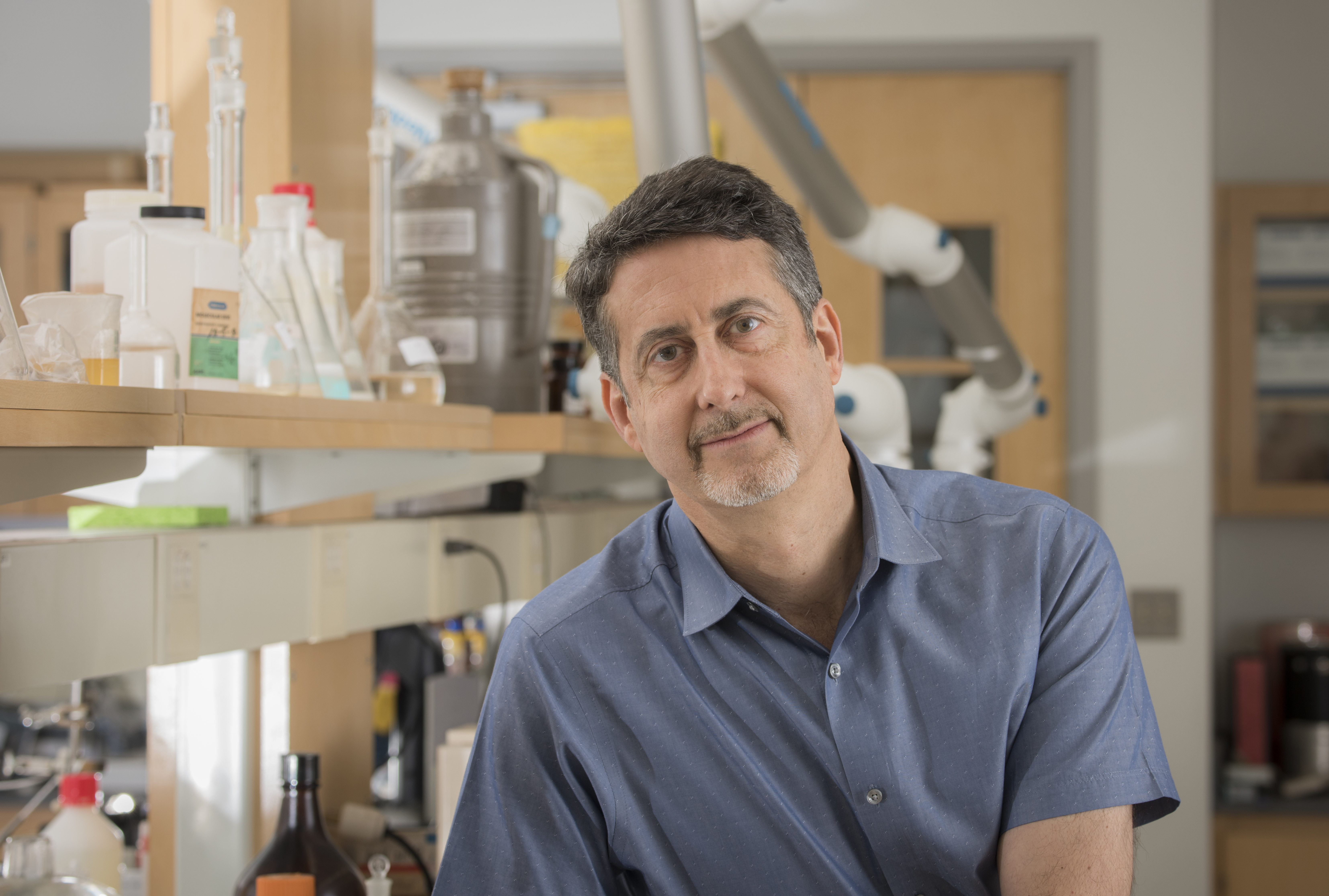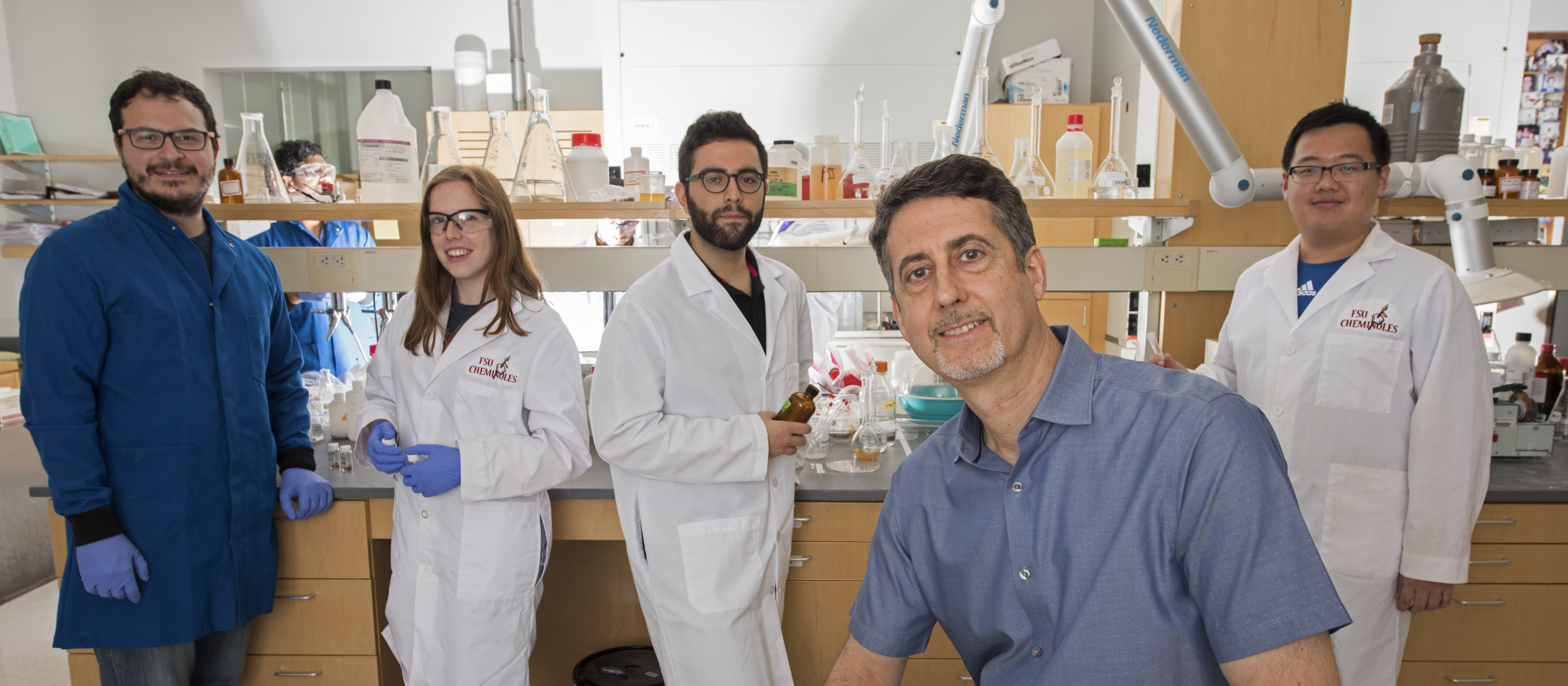Lawton recipient Schlenoff dedicated to students
Joe Schlenoff is a titan in the complex realm of polymer research. The world-renowned veteran of Florida State University’s Department of Chemistry and Biochemistry has been a catalyst for a host of discoveries with real-world practical applications, some in medicine.
Schlenoff, who came to FSU in 1988 immediately after earning his doctorate from the University of Massachusetts, recently received the highest honor that FSU faculty bestow on one of their own — the 2016-2017 Robert O. Lawt

University’s Department of Chemistry and Biochemistry.
Distinguished Professor Award. It is a tribute to his dedication to his department, where he does everything from lecturing hundreds of first-year students to one-on-one mentoring of doctoral candidates.
His prolific research has resulted in more than three dozen patents, an impressive body of work by any measure. But when asked which development he takes the most pride in, the modest, soft-spoken scientist responded without hesitation: “My students.”
“Easy answer,” Schlenoff added. “Seeing them struggle in the lab, seeing them conquer their fears and seeing them thrive in industry, there is no better feeling than that. Isn’t that why we’re here at this fine university?”
Schlenoff takes pride in how prepared his students are for life after FSU. He encourages them to collaborate, to try new approaches to routine problems and to ask questions; to follow their instincts, to learn that failure often precedes the most impressive results.
“Sometimes your work just isn’t working out,” Schlenoff explained. “You need to know you have the support of everyone in your group — not just your professor. I think that’s what makes my students particularly rugged, and that’s why Intel and other corporations like them: They don’t melt down when things aren’t working. They’ve failed many times. It’s inherent in the work, but you have to get over it and be happy with the few successes.”
Schlenoff has created a veritable pipeline from Tallahassee to Intel, the high-tech chipmaker. FSU graduates, armed with doctoral degrees and steeled to continue their research in industry, are making handsome salaries working in research and development.
Haifa Hariri and her husband, Ali Lehaf, are prime examples of this phenomenon. Both are natives of Lebanon who came to Florida State specifically to study polymers alongside Schlenoff. Now both are working at Intel’s facility near Phoenix. Hariri credits Schlenoff for their realization of the American dream.

Chemistry and Biochemistry.
“One of the things that stands out for me regarding Dr. Schlenoff is that he was really an adviser,” Hariri said. “A lot of professors dictate what the students have to do. Dr. Schlenoff allowed a lot of freedom for us to explore and come up with our own ideas. He would be in the background directing us in a very non-authoritative way. It allows a lot of room for creativity in his lab. It’s much more rare than you might think.”
Naresh Dalal, Schlenoff’s colleague and also a Robert O. Lawton Distinguished Professor recipient, notes that Schlenoff’s dedication to his students is well known in their department.
“He’s a great mentor of all students,” Dalal said. “The joy comes from transferring your knowledge to the youngster who adds to what you teach them. He is very, very good at teaching both the research part and how to write after you’ve done the research. He’s both big breadth and big depth.”
A native of New York City, Schlenoff spent more than half of his childhood in London, where he started his journey in higher education. His predilection for science experiments emerged at a much younger age, however. Schlenoff as a child was fascinated by fireworks and decided he could create his own explosives. Looking back, he chuckles and calls it an introduction to chemistry through pyromania.
“That’s the best way to get interested. I only went to the hospital with burns three times,” Schlenoff said wryly. “I took careful notes of each gunpowder mixture that I made.”
He admits he didn’t come to Tallahassee expecting to spend his entire professional career in one place. He had met his wife, Zeina Schlenoff, the director of Middle Eastern Studies in the College of Arts and Science’s Department of Modern Languages and Linguistics, while working on his Ph.D. in Amherst, Massachusetts. They didn’t know what to expect when they came to FSU in 1988.
But since arriving here almost three decades ago, he understands why he’s here.
“You see a lot of faculty loyalty at FSU, and you see a lot of staff loyalty too,” Schlenoff said. “I think for many of us, with the opportunities and freedom we’re given, we quickly learn that the grass is pretty green on your side of the fence.”

